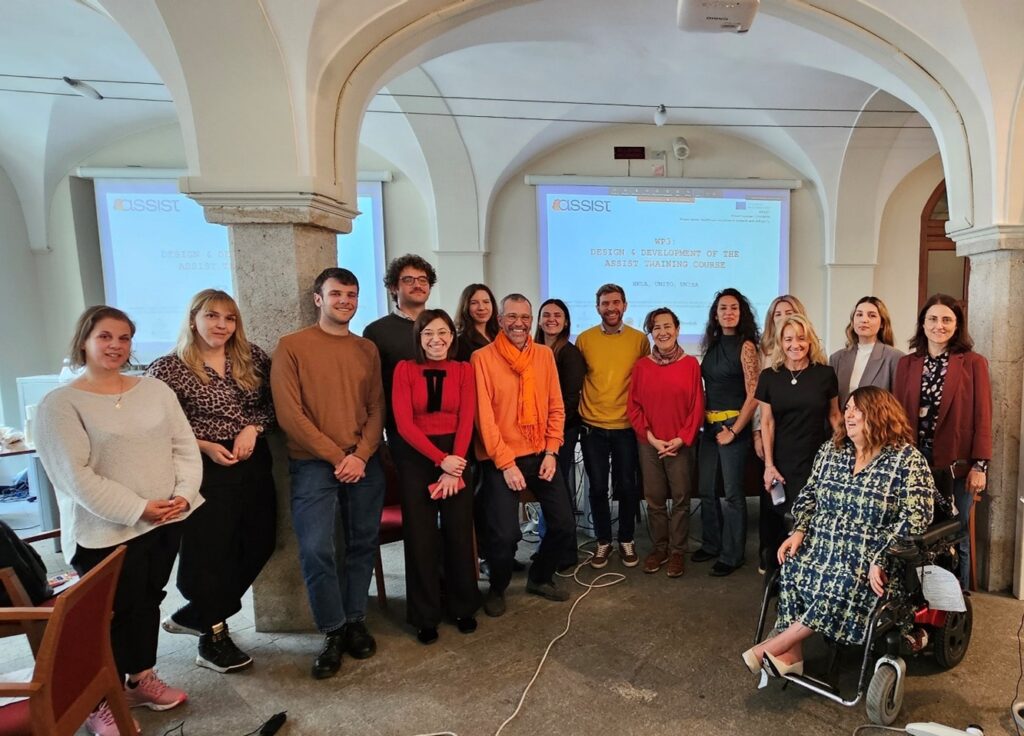ASSIST Kick-Off meeting in Turin 10-11 April 2024
The project
ASSIST: “heAlthcare inclusion of motherS wIth diSabiliTy” is a European project that aims to reduce discrimination and attitudinal biases of healthcare professionals (e.g., doctors, nurses, paramedics, and psychologists) treating women with disability in every phase of motherhood (ASSIST project number: 101134558).
The Kick-Off Meeting
The project is led by Make Mothers Matter EU Delegation (MMM-BE) with a consortium composed by the National and Kapodistrian University of Athens (NKUA-EL), the University of Turin (UNITO-IT), the University of Salerno (UNISA-IT), the National Confederation of Disabled People (NCDP-EL), the research institution READLAB (EL), the non-profit organization SYMPLEXIS (EL), the consulting enterprise CANDIDE INTERNATIONAL (BE), the European Centre of Studies and Initiatives (CESIE ETS, IT), and the community sector organization REDIAL (IE).

On 10-11 April 2024, the Kick-Off Meeting of the ASSIST project took place at the Department of Psychology of the University of Turin, with in-person and online participation from all consortium members.
The meeting lasted for two days, during which the participants discussed the importance of the project’s aim, objectives, and outcomes which will best support the creation of an inclusive healthcare system for mothers and women with disabilities.
inclusion, diversity, and human rights will be matched and concretized in all assist outputs.
The consortium discussed all the project’s work packages and reached all the expected objectives.
- WP1: Project Management and Coordination
- WP2: Combatting healthcare-related discrimination against Europe’s mothers with disability
- WP3: Design & Development of the ASSIST Training Course
- WP4: Development of ASSIST Digital Ecosystem and Resources
- WP5: Dissemination and sustainability
A special focus has been placed on inclusive and respectful language. The project will embrace the “Disability-Inclusive Communication Guidelines” released by the United Nations.


